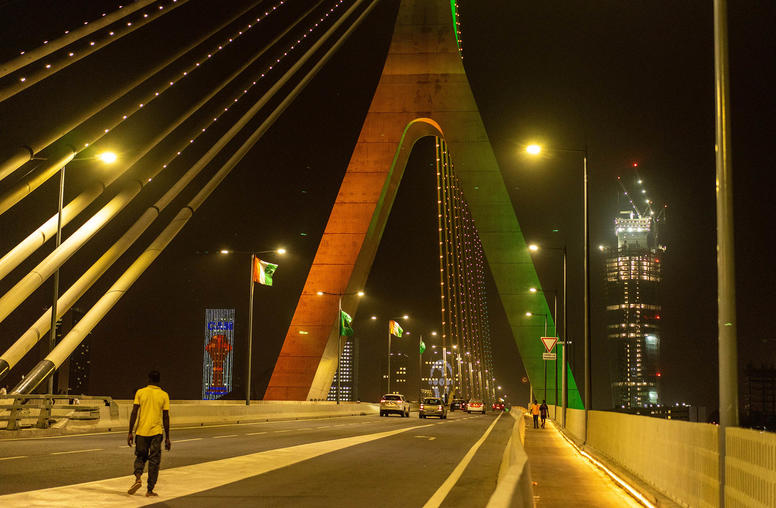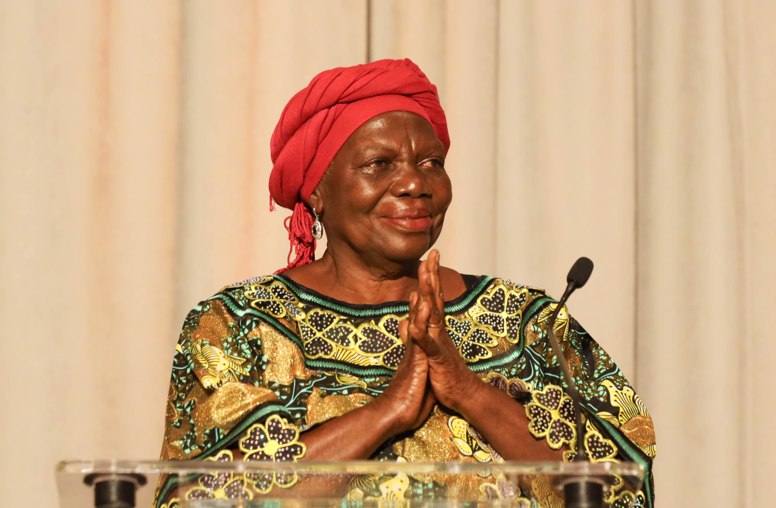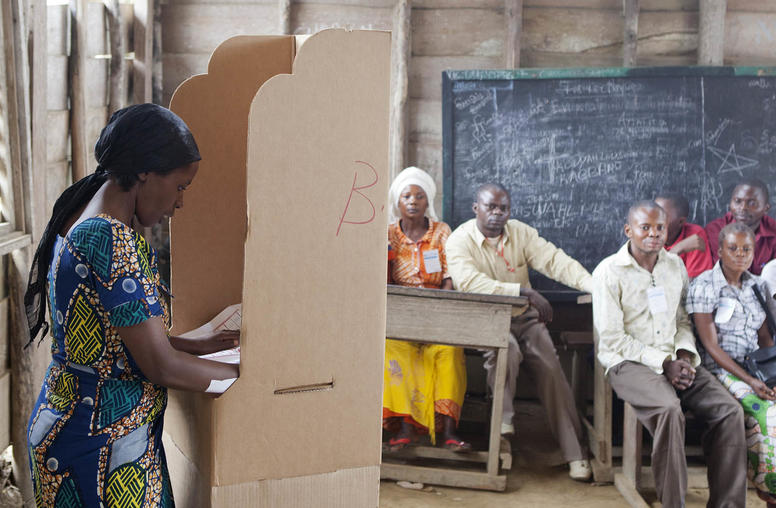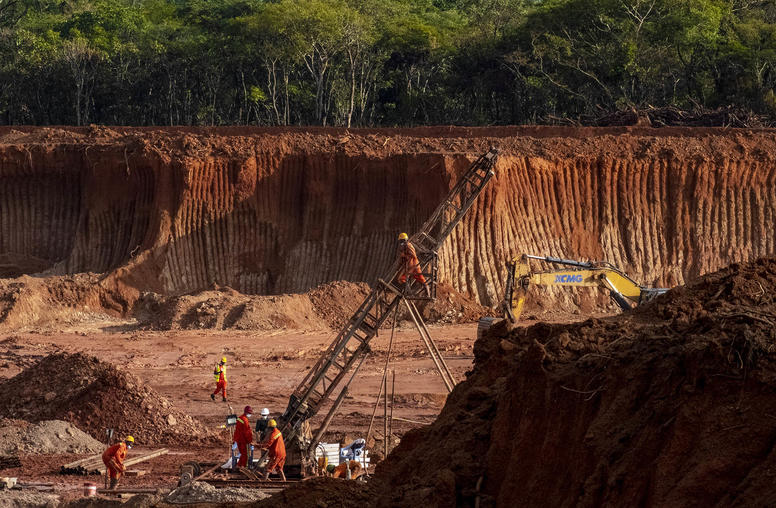More International Engagement on DRC Needed, Former U.N. Special Rep Says at USIP
The Democratic Republic of the Congo (DRC), though afflicted by conflict for nearly two decades, has made limited progress on several key issues but needs continued international support and engagement to help consolidate the gains, the former special representative to the United Nations secretary general told an audience at the Institute on December 11.
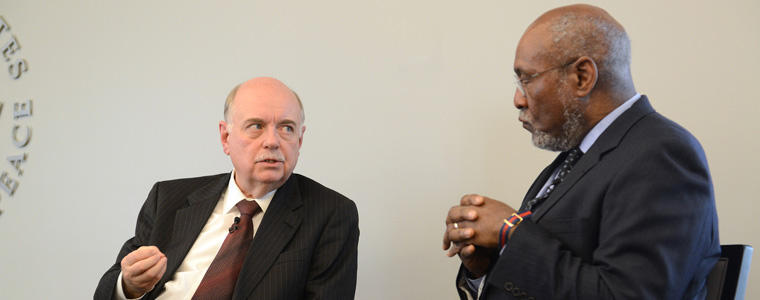
Roger Meece, who held the U.N. post until August, described the progress as hopeful but incomplete and in need of consistent international attention and support. “To be effective, international engagement has to be sustained and be in it for the long run,” said Meece, a retired American diplomat who earlier served as the U.S. ambassador to the DRC. “This can be done. It is achievable.”
Over the past two decades, an estimated five million people have been killed due to conflicts in the DRC, a humanitarian disaster that has typically received far less attention in the United States than many other international conflicts. Tens of thousands of Congolese have been driven from their homes and thousands of women and girls raped by combatants. The instability has been worsened by the intervention at times of militaries or militias from neighboring central African states, adding cross-border fighting to the list of DRC woes and prompting a long-running, U.N. Security Council-approved peacekeeping operation.
Meece was introduced by former assistant secretary of state for African affairs Johnnie Carson, a U.S. Institute of Peace (USIP) special advisor. Carson called the DRC “one of Africa’s most troubled and unsettled areas” and noted that the country has been “a focal point of U.S. foreign policy since its independence in 1960.”
Carson cited enduring problems with the DRC’s weak democratic institutions, widespread corruption, economic underdevelopment and a breakdown in infrastructure. However, he also pointed to several recent developments that could be built upon by the international community. Those developments include the addition of a special intervention force authorized to undertake offensive operations that is part of the U.N. Stabilization Mission in the DRC (known as MONUSCO); the appointment of several high-level international envoys; and the dismantling of what had been a significant anti-government rebel group, called the M-23. “Recent developments suggest that we may be at an inflection point,” he said.
Meece described several points of “incomplete” progress in the DRC as well. Congolese have developed a “strong sense of national identity,” he said, though one that lacks cohesion. There has also been improvement on issues of ethnic reconciliation, including notably fewer attacks on ethnic Tutsis in the capital Kinshasa and in the country’s east. Although starting from a small economic base, macroeconomic performance has been relatively strong, with growth over the past decade averaging around six percent annually. DRC diplomatic ties with neighboring countries are also on a stronger footing than in years past, he said. And national elections held in 2006 represented a “promising democratic start,” though democracy in the DRC is “unfinished” and local and provincial elections have been delayed.
Referring to what he said were key areas for potential progress in the DRC, Meece said that improved relations among the region’s states have created “a new architecture” for further gains on peace and conflict issues. Meece strongly endorsed the new U.N. intervention brigade, which can undertake targeted, offensive operations, and asserted it can help “create the space” for longer-lasting political steps in the country that are conducive to peace.
Greater regional cooperation, including international pressure on Rwanda to refrain from direct military involvement in the DRC’s east, is needed, as is a continued improvement in basic security in that region, Meece said. The DRC also needs police and justice reforms, as well as more effective steps against the illegal exploitation and trafficking of its rich mineral resources, he added. “There is clearly a major role for the international community to play in all of these things,” said Meece.
And yet, Meece cautioned, on such issues as extending state authority in the east, “there are no quick solutions.”
Meece said that the United States, for its part, needs to remain firm in supporting democratic principles and rights in the DRC, a country that endured more than three decades of dictatorship under Mobutu Sese Seko after Belgian colonial rule. Too many DRC politicians have failed to articulate a broader vision for their nation as opposed to holding narrower ambitions based on personal, ethnic and regional interests, he said. But the need to deepen U.S. engagement with the DRC will not be easy, Meece suggested, noting that there is a “weak constituency in this country in terms of the Congo.”
Explore further:
